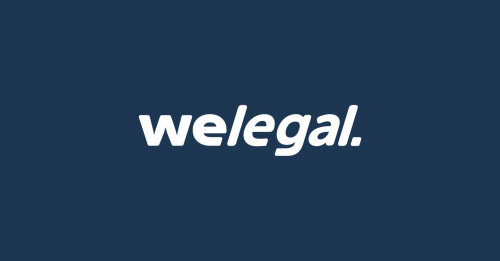Best Licensing Lawyers in Vicente Lopez
Share your needs with us, get contacted by law firms.
Free. Takes 2 min.
List of the best lawyers in Vicente Lopez, Argentina
About Licensing Law in Vicente Lopez, Argentina
Licensing in Vicente Lopez covers a range of legal topics that affect businesses, creators and professionals who want to permit others to use an asset, product or service under defined terms. In practical terms, licensing can mean intellectual property licenses - such as trademarks, patents, copyright and know-how - as well as municipal permits and commercial habilitations required to operate a business or sell regulated goods. Because Vicente Lopez is a municipality within the province of Buenos Aires, licensing issues commonly involve a mix of municipal ordinances, provincial regulation and national law. Understanding which level of government controls a particular license is a key first step.
Why You May Need a Lawyer
Drafting and negotiating license agreements - including exclusive and non-exclusive licenses, sublicensing terms, territorial and field-of-use limitations, royalty clauses, minimum payments and termination mechanics - benefits from a lawyer who can protect your commercial and intellectual-property interests.
Registering or recording a license - certain license contracts are best recorded with national bodies so they are opposable to third parties. A lawyer will advise whether registration at a national agency is needed and prepare the required documentation.
Navigating municipal permits - opening a retail outlet, restaurant or workshop in Vicente Lopez commonly requires a municipal habilitacion, zoning clearance and health or safety approvals. A local lawyer can handle interactions with municipal departments, prepare presentations or appeals, and ensure compliance with local plantilla standards.
Resolving disputes and enforcing rights - if a licensee breaches the agreement, or there is alleged infringement of an IP right, a lawyer can pursue remedies - negotiation, mediation, arbitration or litigation - and advise on provisional relief such as injunctions.
Cross-border licensing and tax compliance - international royalty flows raise tax and foreign-exchange issues. A lawyer working with tax advisors will help structure agreements to reduce withholding, comply with AFIP requirements and consider treaty impacts.
Local Laws Overview
Municipal rules - Municipalidad de Vicente Lopez issues local ordinances that regulate commercial habilitations, zoning, opening hours and specific business activities. Requirements differ by address and by type of activity - food service, manufacturing, retail and professional services each carry their own municipal conditions.
Provincial regulation - as part of Buenos Aires Province, some licenses and inspections - for example large-scale environmental permits or provincial health authorizations - are governed by provincial agencies. Check whether a provincial permit is needed in addition to municipal approval.
National intellectual-property law - trademarks, patents and industrial designs are regulated at the national level by the Instituto Nacional de la Propiedad Industrial - INPI. Copyright is regulated by national law and overseen by the Dirección Nacional del Derecho de Autor. For many IP licenses, registration at the national agency is optional but often advisable to secure priority and clarity.
Health, food and medicines - regulated at national level by agencies such as ANMAT for medicines and some food products. Local food businesses will generally need municipal health clearances plus compliance with national standards.
Tax and foreign-exchange rules - AFIP enforces tax obligations on royalty payments and license income. Cross-border licensing implicates withholding taxes, VAT implications and reporting obligations. Argentina also has foreign-exchange controls that can affect the transfer of royalties abroad.
Consumer protection and competition - licensing arrangements that limit competition or mislead consumers can be subject to consumer-protection rules and competition law scrutiny. Be mindful of exclusivity terms, resale restrictions and statements made about products or services.
Frequently Asked Questions
What is the difference between a license and an assignment?
A license grants permission to use an asset - for a limited scope, duration or purpose - while an assignment transfers ownership or full rights to the assignee. In IP law, an assignment transfers the title to the trademark, patent or copyright, whereas a license leaves ownership with the licensor.
Do I need to register a trademark license in Argentina?
Registration of a trademark license with INPI is not always mandatory, but it is strongly recommended. Recording a license creates public notice and can make the license enforceable against third parties who later claim rights in the mark or attempt to acquire conflicting interests.
What municipal permits are usually required to open a shop in Vicente Lopez?
Typical requirements include a municipal habilitacion commercial, zoning clearance, sanitary or health approval for food businesses, and sometimes signage permits. Requirements depend on the activity and the specific property; local inspections and certificates of no-debt may also be requested.
How are royalties taxed in Argentina?
Royalties are typically subject to income tax rules and may be subject to withholding when paid to non-residents. VAT treatment depends on the nature of the service or intangible. Tax rates and obligations change, so consult a tax lawyer or accountant to structure payments and comply with AFIP rules.
Can I sublicense rights granted to me?
Sublicensing depends on the terms of the original license. Unless the agreement expressly allows sublicensing, the licensee should not grant sublicenses. A lawyer should draft clear sublicensing clauses including approval procedures, responsibilities and revenue sharing.
What should a licensing agreement always include?
Essential elements include the identity of the parties, the licensed rights and limitations, territory and field of use, duration, payment and reporting terms, quality-control provisions, confidentiality and know-how handling, termination clauses and dispute-resolution mechanisms.
Which dispute-resolution method is better - courts or arbitration?
Arbitration offers confidentiality and typically faster resolution, and parties can choose arbitrators with technical expertise. Courts are public and follow formal procedures. Choice depends on enforcement needs, cost considerations and whether interim relief is likely. A lawyer can advise the best forum for your case.
Do licensing agreements need to be in Spanish?
Contracts governed by Argentine law and to be enforced in local courts should be in Spanish to avoid interpretation issues. If parties use another language, it is common to prepare an official Spanish translation and specify which text prevails in case of discrepancy.
How long does it take to obtain municipal approvals in Vicente Lopez?
Timelines vary by the complexity of the permit, the need for inspections and completeness of documentation. Simple habilitaciones can take weeks, while approvals involving renovations, environmental reviews or health inspections can take several months. Engage a local lawyer or gestor to help streamline the process.
Can I license software or digital content under Argentine law?
Yes. Software and digital content are protected under copyright and contract law. Licensing should address rights to use, modify and distribute, protection of source code or content, liability limits, updates and data protection compliance with Argentina s personal-data law.
Additional Resources
Municipalidad de Vicente Lopez - municipal offices manage commercial habilitations, zoning and local inspections.
Instituto Nacional de la Propiedad Industrial - INPI - national authority for trademarks, patents and industrial designs.
Dirección Nacional del Derecho de Autor - national body for copyright registration and inquiries.
ANMAT - national agency regulating medicines, certain food categories and medical devices.
Administración Federal de Ingresos Públicos - AFIP - for tax, VAT and withholding guidance on royalties and license income.
Local bar associations - a lawyer registered in Buenos Aires Province or with the Colegio de Abogados that covers the Vicente Lopez district can provide local representation and procedural support.
Local chamber of commerce and industry - for practical business guidance, networking and local regulatory updates.
Next Steps
1. Identify the nature of the license you need - IP license, municipal business habilitation, health permit or other. Clarify the asset, territory, duration and commercial goals.
2. Gather documents - proof of ownership or title, existing contracts, municipal property records, identification of parties and any technical or sanitary certificates. Prepare a short written summary of the desired deal or the issue you face.
3. Consult a local lawyer - choose a lawyer with experience in licensing and familiarity with Vicente Lopez municipal procedures. Ask about languages, fees, retainer arrangements and expected timelines. Request a written engagement letter that sets scope and costs.
4. Consider specialists - for cross-border licenses include a tax advisor and, if needed, an IP specialist. For regulated products involve regulatory counsel familiar with ANMAT and provincial rules.
5. Negotiate and document - ensure the agreement addresses key commercial and legal points - payments, reporting, quality controls, confidentiality, termination and dispute resolution. If required, record the license with the appropriate national agency to strengthen enforceability.
6. Maintain compliance - set up processes for royalty reporting, renewals and municipal renewals or inspections. Keep copies of approvals and correspondence in an organized file.
If you are unsure which step to take first, start with a short consultation with a local lawyer who can map the required permits and legal steps for your specific situation and help you prioritize actions.
Lawzana helps you find the best lawyers and law firms in Vicente Lopez through a curated and pre-screened list of qualified legal professionals. Our platform offers rankings and detailed profiles of attorneys and law firms, allowing you to compare based on practice areas, including Licensing, experience, and client feedback.
Each profile includes a description of the firm's areas of practice, client reviews, team members and partners, year of establishment, spoken languages, office locations, contact information, social media presence, and any published articles or resources. Most firms on our platform speak English and are experienced in both local and international legal matters.
Get a quote from top-rated law firms in Vicente Lopez, Argentina — quickly, securely, and without unnecessary hassle.
Disclaimer:
The information provided on this page is for general informational purposes only and does not constitute legal advice. While we strive to ensure the accuracy and relevance of the content, legal information may change over time, and interpretations of the law can vary. You should always consult with a qualified legal professional for advice specific to your situation.
We disclaim all liability for actions taken or not taken based on the content of this page. If you believe any information is incorrect or outdated, please contact us, and we will review and update it where appropriate.









